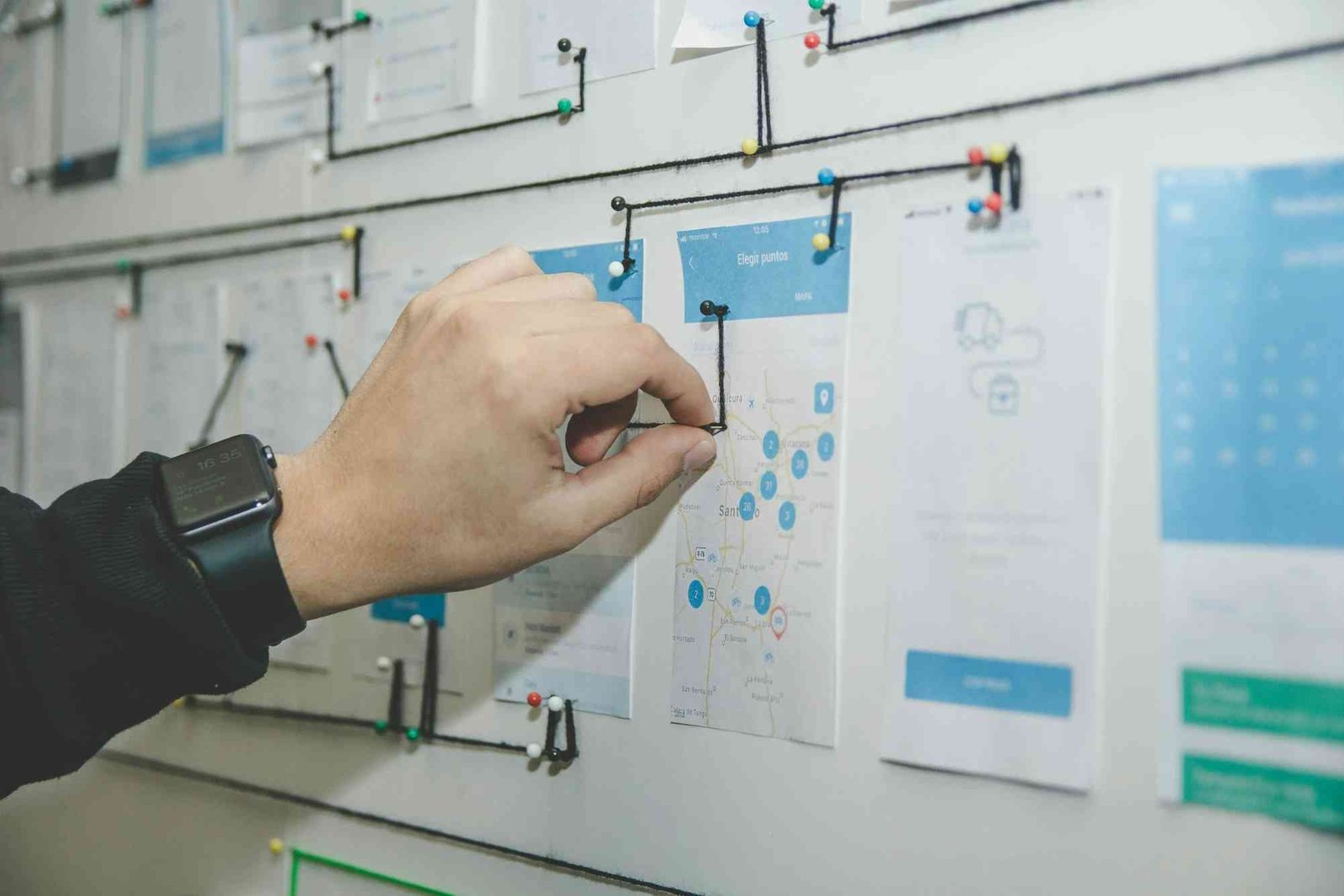College feels exciting and overwhelming at the same time. New classes, new people, new challenges, and a world of opportunity all arrive at once. The transition can be intense, yet it also brings a valuable chance to grow in ways that shape your future. Understanding essential tips for making the most of your college experience helps you navigate these years with confidence and purpose. You deserve to enjoy this journey and walk away prepared for life beyond graduation.
Understanding the College Mindset
Shifting from High School to Independence
College demands responsibility. Professors will not chase you for homework, and no one reminds you to study. This shift can feel sudden. Start by accepting independence as a gift. Each choice becomes an investment in who you want to become. Once you step into that mindset, your days feel more intentional and rewarding.
Building Lifelong Habits Early
Many successful graduates point back to routines built in the first year. Waking up early, staying organized, and managing time well make a noticeable difference. When you create these habits now, you avoid stress later. Discipline becomes freedom because it protects your goals.
Academic Excellence and Smart Studying
Attending Classes with Purpose
Showing up to class matters. Professors often explain concepts you will not find in textbooks. Attending gives you context and clarity, along with opportunities to ask questions. When you sit near the front and stay engaged, you stay motivated and remember more.
Making Study Systems Work for You
Every student learns differently. Some prefer quiet libraries, while others work better in coffee shops. Try different approaches until you find a rhythm. Break study sessions into shorter blocks to stay focused. Review notes on the same day you take them. These simple practices reinforce learning and prevent last-minute panic.
Using Office Hours and Campus Resources
Many students avoid office hours because they feel intimidated. Yet professors create these sessions to help you understand material and improve performance. Visiting early builds relationships and opens mentorship opportunities. Campus tutoring centers, writing labs, and academic advisors also offer strong support. Use them without hesitation.
Creating a Balanced Social Life
Making Friends and Building Community
College brings diverse people together. Create connections by talking to classmates, joining student clubs, and attending campus events. Friendships form naturally when you stay open and curious. Social support boosts mental health and makes campus feel like home.
Navigating Peer Pressure with Confidence
Some social environments can test your values. Stay grounded in your goals. You do not need to follow every crowd. When you align your choices with your priorities, you build confidence. Supportive friends respect your boundaries and inspire your best self.
Managing Time and Stress
Prioritizing What Matters Most
College calendars fill quickly. Prioritize academic deadlines, personal goals, and downtime. When you choose commitments wisely, you avoid burnout. Planning weekly and reviewing daily keeps your schedule under control.
Practicing Healthy Stress Management
Stress happens, even with strong planning. Learn healthy relief strategies. Exercise boosts mood and energy. Walking outdoors clears your mind. Writing thoughts in a journal helps process emotions. Asking for help shows strength, not weakness. Counseling services exist for a reason, and many students benefit from them.
Financial Responsibility and Real-World Preparation
Budgeting Wisely from Day One
College introduces financial freedom and responsibility. Track spending and set a simple budget. Many students overspend early and struggle later. Cooking meals, choosing free student events, and sharing textbooks reduce strain. Financial awareness protects your future.
Exploring Part-Time Work and Internships
Work experience builds skills and confidence. Part-time campus jobs allow you to earn money while keeping academics first. Internships offer practical training and industry insight. These experiences strengthen your resume and help shape long-term goals.
Personal Growth and Identity Building
Trying New Activities and Interests
College is the ideal time to experiment. Join a dance class, volunteer, or explore entrepreneurship. You might discover talents or passions you never knew existed. Growth happens when you step outside comfort zones.
Understanding Who You Are Becoming
College shapes identity. You learn what motivates you, what challenges you, and what values matter most. Reflect regularly. Journaling and talking with mentors helps clarify direction. This self-knowledge becomes a powerful asset in any career or relationship.
Technology and Productivity
Using Digital Tools Strategically
Technology enhances learning when used wisely. Apps for scheduling, note-taking, and task management help you stay organized. Campus platforms keep you informed about events and deadlines. Balance screen time to protect focus and mental health.
Avoiding Distractions and Staying Present
Constant notifications pull attention away from goals. Create tech boundaries. Silent mode during study sessions keeps your mind clear. Spend intentional time offline to stay present with friends and activities.
Health, Wellness, and Self-Care
Maintaining Physical Well-Being
Healthy bodies support strong minds. Balanced meals, hydration, and regular exercise fuel energy and focus. Sleep matters more than most students realize. Consistent rest sharpens memory and reduces stress. If you enjoy group fitness, seek campus classes or local studios. You may even find motivation in community workouts, similar to popular group training environments such as those found near places like Orange Theory Mountain View, which shows how group energy can push you further.
Protecting Your Mental Health
Mental health deserves serious attention. College emotions can fluctuate. Stay aware of how you feel and talk openly with trusted friends. If anxiety or sadness becomes hard to manage, reach out to campus professionals. Support exists to help you thrive.
Career Planning During College
Using Career Centers and Mentorship
Career centers offer guidance for resumes, interviews, and internship searches. Attend workshops early, not only in your final year. Seek professors or industry professionals who can offer insight. Mentors accelerate growth by sharing real experience.
Gaining Practical Experience and Networking
Practical exposure prepares you for life after graduation. Join student chapters of professional organizations. Attend career fairs and networking sessions. Handshakes and conversations open doors that online applications cannot.
Staying Motivated Through Challenges
Embracing Setbacks as Learning Moments
Not every exam or semester goes perfectly. Difficult periods teach resilience. Reflect on challenges, adjust strategy, and continue forward. Growth often hides behind discomfort. With persistence, each setback becomes a stepping-stone.
Celebrating Progress, Not Just Outcomes
Celebrate small wins. Completing assignments on time, making new friends, or sticking to routines deserves recognition. Progress builds confidence. When you appreciate your journey, motivation stays strong.
Internal Resource Links for Further Exploration
If you want to explore lifestyle insights beyond academics, see the Related Blog article on removing long-lasting makeup at .
For more inspiration on embracing campus life, visit How To Enjoy College Life at .
To expand your horizons and discover new places during breaks or after graduation, Learn more at .
You now understand essential tips for making the most of your college experience, from academic excellence to personal growth. When you approach each semester with intention, curiosity, and balance, you create a foundation for lifelong success. Begin applying these strategies today and give yourself permission to enjoy this transformative time. Take action, explore opportunities, and build habits that support your future. Start now and make your college years truly meaningful.
FAQs
How do I make the most of my college experience?
Stay engaged in classes, build connections, explore new interests, and balance academics with self-care. Consistent effort and intentional choices shape fulfilling college years.
How can I enjoy college life more?
Create friendships, join clubs, attend campus events, and take breaks to relax. Enjoying college often comes from staying open to new experiences and managing stress wisely.
What should every college student do in their first year?
Attend classes regularly, meet professors, build a routine, and explore campus resources. Trying activities early helps you find your community and rhythm.
How do I stay motivated throughout college?
Set clear goals, break tasks into smaller steps, and celebrate progress. Surround yourself with supportive peers and seek mentorship to stay inspired.








